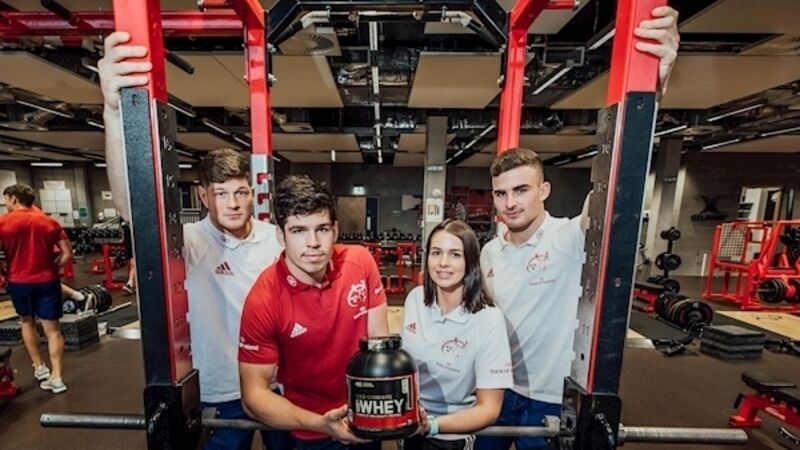Game on: Performance nutrition delivers results on the pitch for Munster Rugby

Good nutrition right can make a vital difference on the pitch. talks to performance nutritionist Emma Tester who is responsible for crafting bespoke diet plans for Munster players
There's no relaxation at half time in the Munster dressing room. At least not for the team’s lead performance nutritionist Emma Tester. For her, it’s game on as she makes sure the players have the right fuel to take them through to the final whistle.











